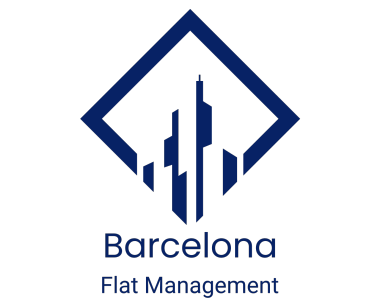In Barcelona, the intricate web of real estate laws plays a pivotal role in shaping the experiences of tenants and property owners alike. Navigating these laws is crucial, as they encompass a wide range of regulations from lease agreements to property taxes, directly impacting the rights, responsibilities, and financial aspects of both parties.
Understanding these legalities is not just about compliance; it’s essential for making informed decisions, ensuring fair dealings, and maintaining harmonious tenant-owner relationships in the dynamic landscape of Barcelona’s real estate market.
Lease Agreements: Rights and Responsibilities
Lease agreements in Barcelona are governed by a set of specific regulations that outline the rights and responsibilities of both tenants and landlords, ensuring a fair and transparent rental process. A typical lease agreement includes key elements such as the duration of the lease, monthly rent amount, security deposit requirements, and conditions for renewal or termination.
For tenants, rights include the use of the property as a home without undue interference from the landlord, receiving the property in a habitable condition, and a notice period before eviction. Tenants are responsible for paying rent on time, maintaining the property in good condition, and adhering to the terms agreed upon in the lease.
Landlords, on the other hand, have the right to receive rent payments promptly, inspect the property with prior notice, and retain the security deposit if there is damage beyond normal wear and tear. Their responsibilities include ensuring the property meets health and safety standards, carrying out necessary repairs, and respecting the tenant’s privacy and peaceful enjoyment of the property.
Understanding these rights and responsibilities is crucial for both parties to avoid disputes and ensure a smooth rental experience in Barcelona’s real estate market. This knowledge empowers tenants and landlords to engage in fair and legally compliant rental relationships.
Navigating Financial Commitments: Property Taxes and Fees in Barcelona
In Barcelona, understanding the financial obligations associated with property ownership and rental is essential. Property owners are subject to several taxes and fees, which can also indirectly impact tenants. The most significant of these is the IBI (Impuesto sobre Bienes Inmuebles), a local property tax calculated based on the cadastral value. This annual tax is the owner’s responsibility, but it can influence rental prices.
Another key fee for owners is the community charge for properties within a building or complex. This covers shared services and maintenance, and its cost is often reflected in the rental price. Additionally, owners who rent out their properties must declare their rental income and pay income tax, which can affect their rental yield.
For tenants, the primary financial obligation is the rent and a security deposit, typically one to two months’ rent. While utilities are usually the tenant’s responsibility, some rental agreements may include them in the rent.
Resolving Rental Conflicts: Dispute Management in Barcelona’s Real Estate
Disputes between tenants and landlords in Barcelona, while not commonplace, can arise and often center around issues such as rent increases, property maintenance, security deposit returns, and eviction procedures. Effective resolution of these conflicts is crucial for maintaining a harmonious rental relationship.
For rent increases, the law in Barcelona stipulates specific conditions under which a landlord can raise the rent, usually tied to contract terms and inflation rates. Disagreements over property maintenance or security deposit returns typically revolve around differing interpretations of ‘normal wear and tear’. Clear communication and negotiation are the first steps in resolving these disputes.
If resolution cannot be reached amicably, legal avenues are available. The ‘Juzgado de Primera Instancia’ (Court of First Instance) deals with real estate disputes in Barcelona. Tenants and landlords can seek mediation or arbitration before heading to court, a faster and often more cost-effective solution.
Additionally, seeking advice from legal professionals specializing in real estate law can provide both parties with a clearer understanding of their rights and obligations, potentially preventing disputes from escalating. Knowing these avenues and the common ground for disputes helps both tenants and landlords navigate conflicts more effectively, ensuring a smoother tenancy.
Staying Updated: Recent Shifts in Barcelona’s Real Estate Legislation
Recent changes in Barcelona’s real estate laws reflect the city’s response to evolving housing needs and market dynamics, impacting both tenants and property owners. One significant update is the regulation on rent control, aimed at making housing more affordable. This law limits rent increases in “tensioned housing markets” of the city, based on a reference index. For tenants, this means more predictable and stable rent costs, while landlords face restrictions on how much they can charge for their properties.
Another update involves regulations on tourist rentals. The city has tightened controls on short-term rental licenses to preserve residential housing availability. This affects property owners looking to enter the lucrative tourist rental market, requiring them to adhere to stricter guidelines.
Enhancements in energy efficiency requirements for buildings have also been introduced. Property owners are now encouraged to improve their buildings’ energy performance, impacting renovation plans and rental market positioning.
For both tenants and owners, staying informed about these legal changes is crucial. It ensures compliance with new regulations, helps in making informed decisions regarding property investments, and enhances the ability to negotiate and maintain balanced rental agreements. As the real estate landscape continues to evolve, understanding these legalities becomes a vital part of successful property management in Barcelona.
Empowering Through Knowledge: Staying Informed on Barcelona’s Real Estate Laws
In conclusion, understanding Barcelona’s real estate laws is imperative for both tenants and property owners. The intricacies of lease agreements, the implications of property taxes and fees, navigating disputes, and staying abreast of legal updates form the core of a harmonious tenant-owner relationship. Key regulations, such as rent control measures, tourist rental restrictions, and energy efficiency mandates, significantly affect the dynamics of property management and tenancy. Staying informed about these laws not only empowers individuals to make better decisions but also ensures compliance and fosters a fair, transparent real estate environment.
In a city where property and rental markets are constantly evolving, knowledge truly is power, and staying updated on these legal aspects is essential for anyone involved in Barcelona’s real estate scene.













